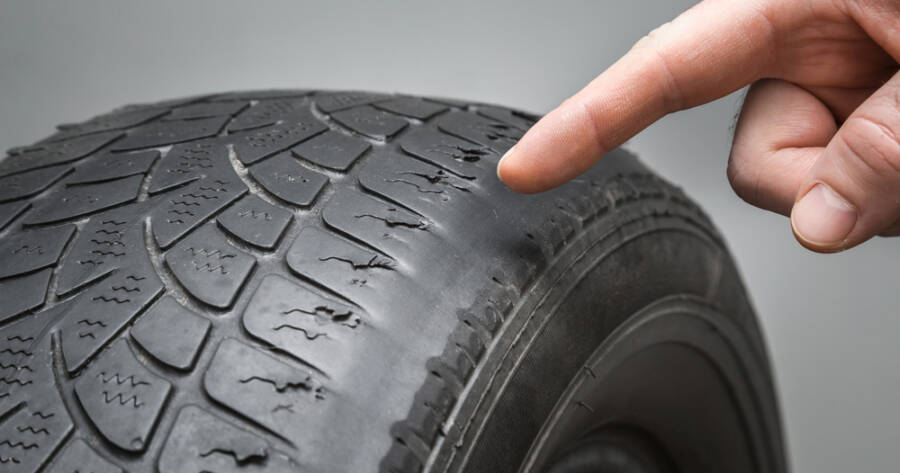Regular tire rotation and alignment are fundamental aspects of vehicle maintenance that can often be overlooked by car owners. These important practices can potentially extend the life of tires, contribute to better fuel efficiency, and enhance overall driving safety. While many factors influence vehicle performance, tires play a central role, making their proper care essential. Understanding the importance of these practices could lead to fewer complications on the road and a more enjoyable driving experience.
The Basics of Tire Rotation
Tire rotation involves moving tires from one position on the vehicle to another to ensure even tire wear. Common patterns include front-to-back or cross-rotation methods. By redistributing the positions of your tires, it’s possible to achieve a more uniform wear pattern, which may result in longer tread life. Although each vehicle and tire type is different, a general guideline suggests rotating tires every 5,000 to 8,000 miles.
The benefits of regular tire rotation can include improved handling and better traction. Uneven tire wear might affect the balance and stability of a vehicle, potentially leading to hazardous situations, particularly during inclement weather. Thus, adhering to a regular rotation schedule aimed at keeping wear consistent across all tires may contribute to a smoother and safer ride.
The Importance of Wheel Alignment
Wheel alignment refers to adjusting the angles of the wheels so they are set to the manufacturer’s specifications. Misalignment can occur through daily activities such as hitting potholes or curbs, and may often lead to uneven tire wear and a decrease in vehicle performance. When wheels are properly aligned, it could enhance the vehicle’s handling, reduce tire wear, and improve fuel efficiency.
Proper alignment can also minimize the stress placed on a vehicle’s suspension and steering mechanisms, potentially prolonging their lifespan. While alignment issues often result in noticeable symptoms such as pulling to one side or an off-center steering wheel, getting professional alignments on a regular basis—typically once a year or after significant impacts—may help prevent these issues.
The Financial Implications of Neglect
Ignoring tire rotation and alignment may result in costly consequences. As tires wear unevenly and alignment issues persist, the need for premature tire replacement might arise, placing an unexpected financial burden on vehicle owners. Investing in regular maintenance can lead to a potentially significant return on investment, as aligned wheels and properly rotated tires may decrease the frequency of replacements needed.
Moreover, uneven tire wear and misalignment can decrease fuel efficiency, leading to more frequent trips to the gas station. Keeping tires in good shape and aligned to specifications might help mitigate these unwanted expenses, contributing to overall cost savings over time.
Safety Considerations
Safety is paramount when it comes to vehicle maintenance, and tires are a critical line of defense. Properly aligned and rotated tires can play a key role in maintaining vehicle stability and control. Unevenly worn tires may compromise a vehicle’s grip on the road, particularly in adverse conditions like rain or snow. Regular rotation and alignment could enhance a driver’s ability to handle sharp turns, sudden stops, or emergency maneuvers.
The peace of mind that comes with knowing a vehicle is equipped with well-maintained tires could enhance the driving experience. While no amount of maintenance can guarantee complete safety, taking proactive steps to ensure tires and wheels are in optimal condition may significantly reduce risks associated with driving.
Environmental Impact
In addition to safety and financial benefits, properly maintaining tire health might also have positive environmental implications. Tires that wear evenly and maintain proper alignment might operate more efficiently, potentially reducing carbon emissions. Enhanced fuel economy from these practices can contribute to a smaller carbon footprint, aligning with broader efforts to conserve resources and reduce environmental impact.
By contributing to fewer tire replacements and less fuel consumption, regular tire maintenance can play a role in reducing environmental impact. Though seemingly small, these efforts may support broader conservation initiatives, benefiting not just vehicle owners but the planet as well.
Learn More Today!
Regular tire rotation and alignment are critical components of responsible vehicle maintenance that may lead to improved safety, financial savings, and environmental benefits. While no maintenance practice can ensure absolute protection or savings, engaging in these routines could promote a smoother, more efficient driving experience.
By prioritizing tire health, car owners can potentially extend tire life and enhance their vehicle’s overall performance. Prioritizing these practices may lead to a safer and more economically sound approach to vehicle ownership.

